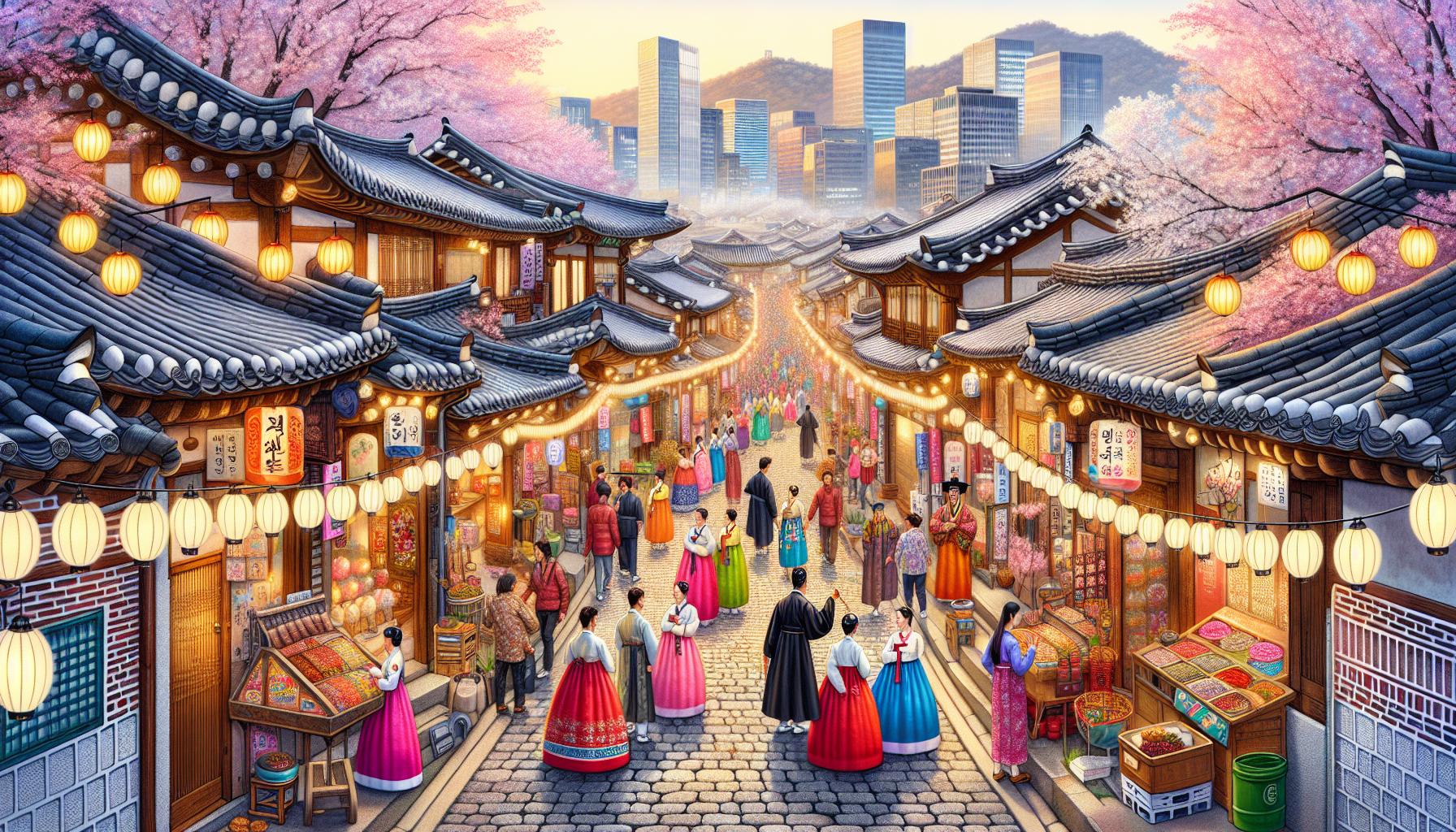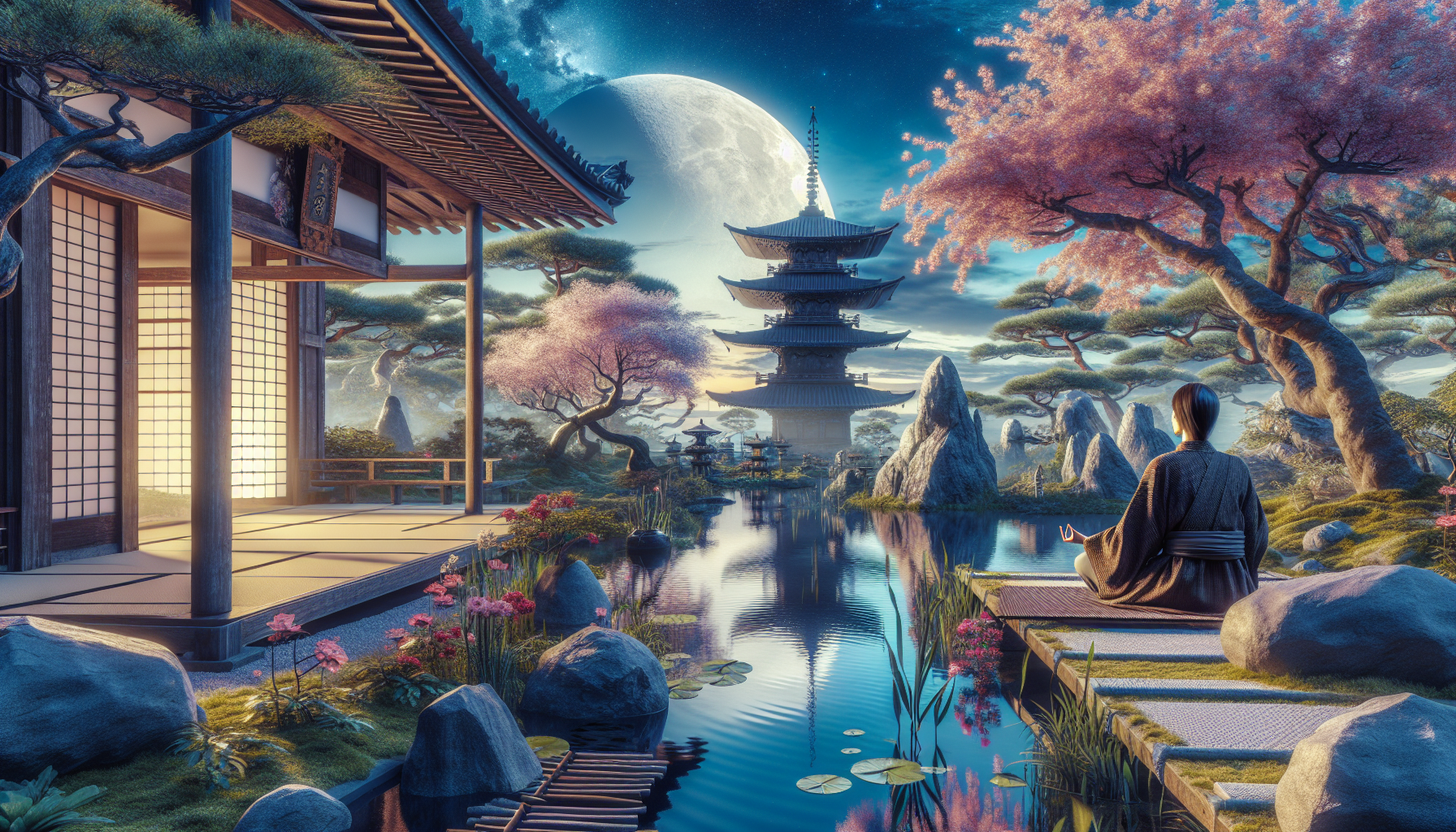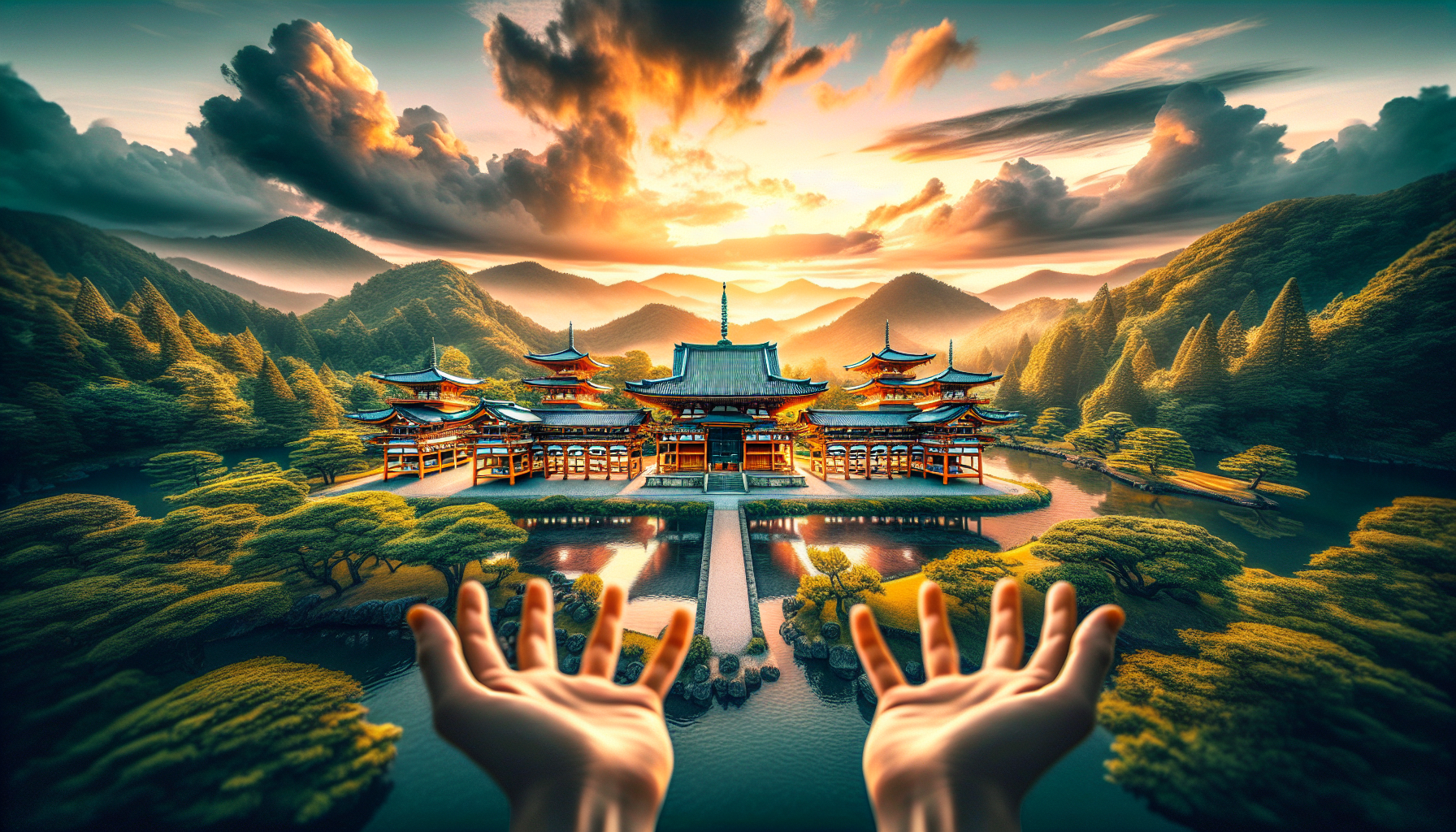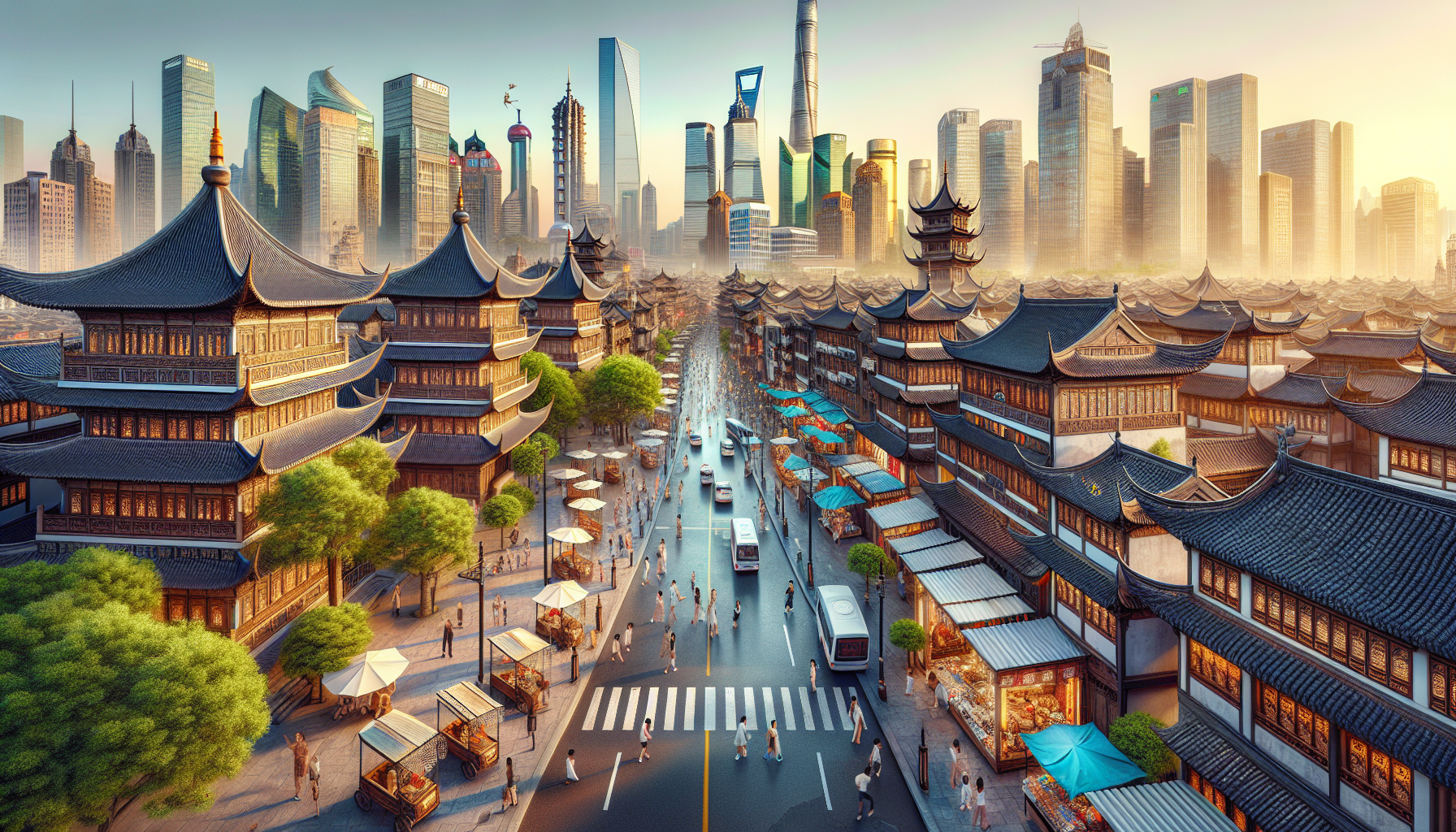Advertisements
Seoul, the capital of South Korea, is a city that perfectly blends modernity with tradition. While the skyscrapers impress with their grandeur, the cultural and traditional treasures hidden in the city’s narrow streets reveal a unique and fascinating essence. In this article, we will explore a little more about this rich South Korean culture, highlighting the historical and traditional sites that are worth visiting for a truly enriching experience.
As you stroll through the streets of Seoul, you’ll come across magnificent palaces, ancient temples and traditional markets that preserve the country’s history and culture. Gyeongbokgung Palace, for example, is a true masterpiece of Korean architecture, while Namdaemun Market offers a unique shopping and local dining experience. These are just a few examples of the cultural treasures that await visitors around every corner of the city.
In addition to the well-known tourist attractions, South Korean culture is also reflected in its cuisine, traditional arts and local festivals. Trying local dishes like kimchi and bulgogi, watching a folk dance performance or participating in traditional festivals are all ways to further immerse yourself in the country’s rich cultural heritage. With each experience, visitors have the opportunity to immerse themselves deeper into the essence of South Korea.
Advertisements
Explore the cultural essence of South Korea: Discover Seoul's traditional treasures beyond the skyscrapers!
Discover Seoul's historic palaces
Seoul, the capital of South Korea, is a city that perfectly blends tradition and modernity. In addition to impressive skyscrapers and cutting-edge technology, the city is also home to traditional treasures such as historic palaces. The Gyeongbokgung Palace, built in the 14th century, is one of the most important and impressive royal palaces in Korea. Other palaces such as Changdeokgung and Deoksugung are also worth a visit for history and architecture lovers.
Explore Seoul's Traditional Markets
Seoul’s traditional markets are cultural treasures where you can sample authentic Korean cuisine, shop for local produce, and buy unique handicrafts. Gwangjang Market is one of Seoul’s oldest and most famous markets, known for its traditional food stalls and textiles. Namdaemun Market is the largest traditional market in Korea, where you can find everything from clothing and accessories to souvenirs and beauty products.
Visit Buddhist temples
South Korea is a country with a strong Buddhist tradition, and in Seoul you will find several ancient and sacred temples. Jogyesa Temple is the city's main Buddhist temple, known for its architectural beauty and the religious ceremonies that take place there regularly. Bongeunsa Temple, located in the heart of the Gangnam district, is an oasis of peace and spirituality amidst the hustle and bustle of the city.
Participate in cultural festivals
Seoul hosts several cultural festivals throughout the year that celebrate the country’s rich cultural heritage. The Lotus Lantern Festival, held at Jogyesa Temple, is a unique experience that involves lighting thousands of lanterns in honor of the Buddha. The Cherry Blossom Festival, held in spring, is a celebration of the beauty of cherry blossoms, a symbol of Korean culture.
Advertisements
- Historic Palaces of Seoul
- Traditional markets in Seoul
- Buddhist temples in Seoul
- Cultural Festivals in Seoul

Seoul, the dynamic capital of South Korea, is a place where history meets the future in fascinating ways. While its vibrant streets and modern skyscrapers illustrate its status as a global metropolis, the city also preserves the traditions that have defined it over the centuries. Historic palaces such as Gyeongbokgung and Changdeokgung are testaments to the grandeur of the Joseon dynasty and offer visitors a unique immersion experience in ancient Korean culture.
In addition to the palaces, traditional markets such as Namdaemun Market and Gwangjang Market are must-sees for those looking to sample local cuisine, featuring delicacies such as banchan (small dishes served with rice) and the famous tteokbokki (spicy rice dumplings). Buddhist temples such as Jogyesa are also important spiritual landmarks, offering visitors a glimpse into the serenity and spirituality that permeates Korean life.
However, Seoul is also a city that doesn’t just dwell on the past. The city’s modern art scene shines with renowned museums such as the National Museum of Korea and the Leeum Art Museum, which house collections of both contemporary and traditional art. The Insadong neighborhood, famous for its art galleries and craft shops, is a place where Korean traditions coexist with artistic innovation.
Seoul is also home to a globally influential pop culture, with the rise of K-pop and Korean fashion, and its vibrant performances, fashion shows and cultural events provide an immersion into the city’s modern lifestyle. This fusion of past and future makes Seoul a fascinating and multifaceted destination for any traveler looking to explore the true essence of South Korea.
Conclusion
In short, exploring the cultural essence of South Korea, and Seoul in particular, goes far beyond the impressive skyscrapers and cutting-edge technology. Historic palaces such as Gyeongbokgung, Changdeokgung and Deoksugung offer an immersion into the country’s rich history and architecture. Traditional markets such as Gwangjang and Namdaemun provide an authentic experience of local cuisine and crafts. Buddhist temples such as Jogyesa and Bongeunsa are also havens of peace and spirituality in the heart of the city.
Attending cultural festivals in Seoul, such as the Lotus Lantern Festival and the Cherry Blossom Festival, allows you to experience the country’s rich cultural and spiritual heritage. These unique experiences contribute to a deeper understanding of Korean culture and enrich any visitor’s trip. In short, Seoul offers a variety of activities and attractions that go beyond the superficial, allowing travelers to explore and appreciate the true essence of South Korea. So, be sure to immerse yourself in this rich culture and discover the traditional treasures that the city has to offer. Enjoy every moment and let yourself be enchanted by this fascinating blend of tradition and modernity.




